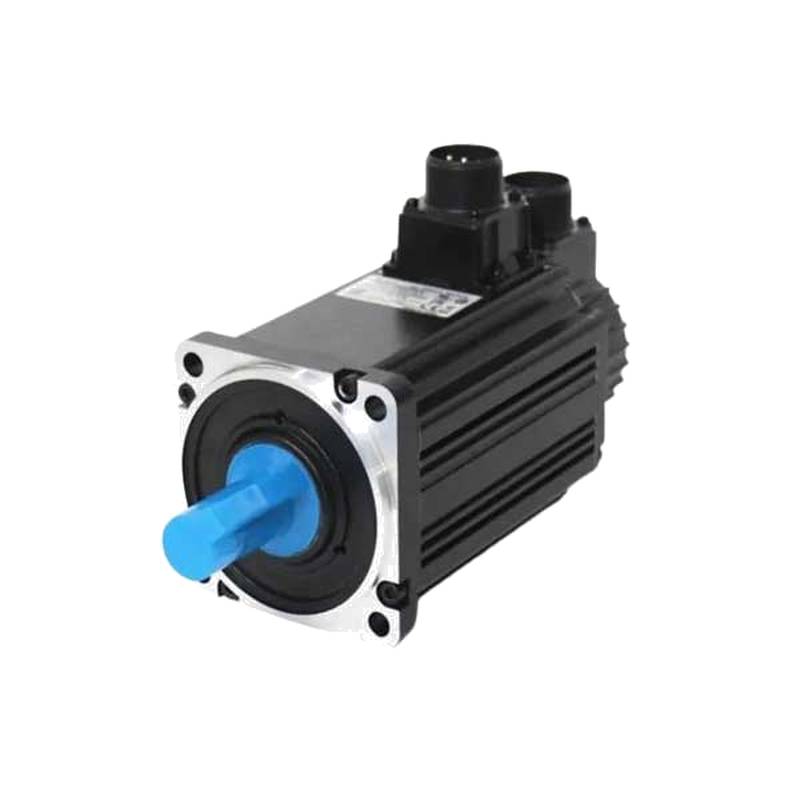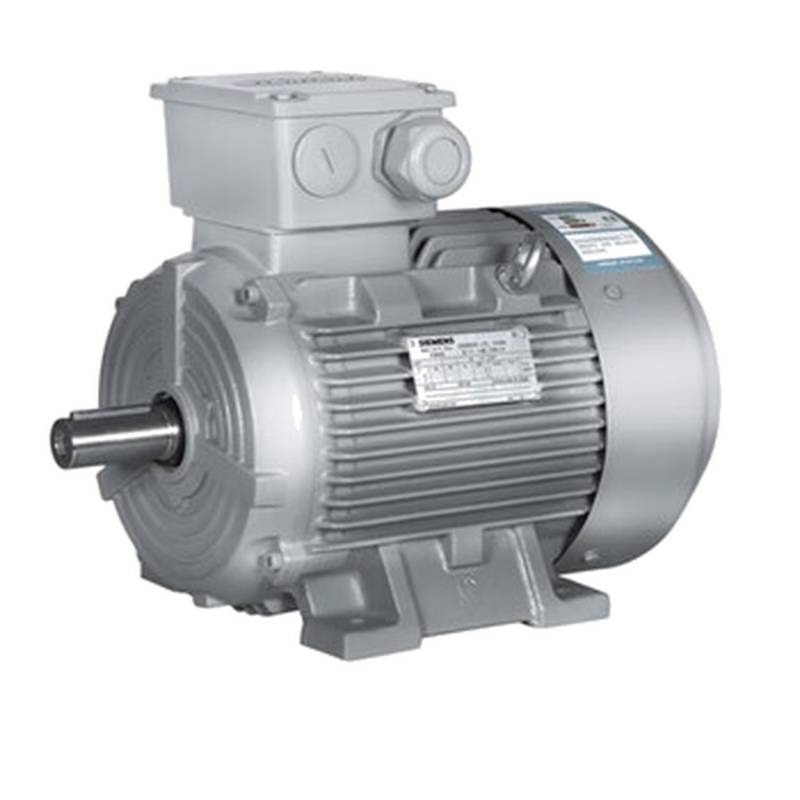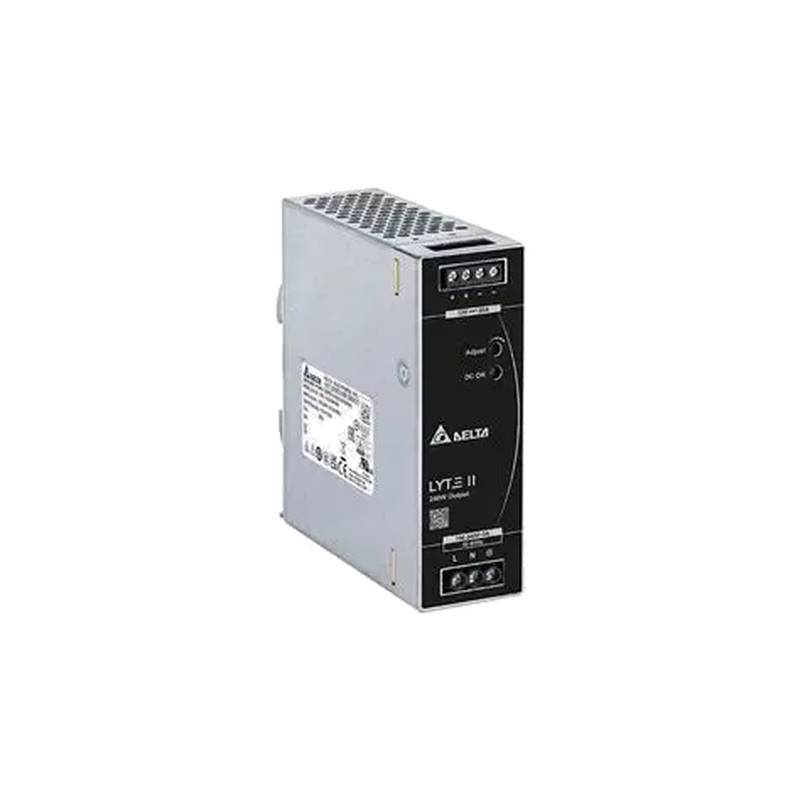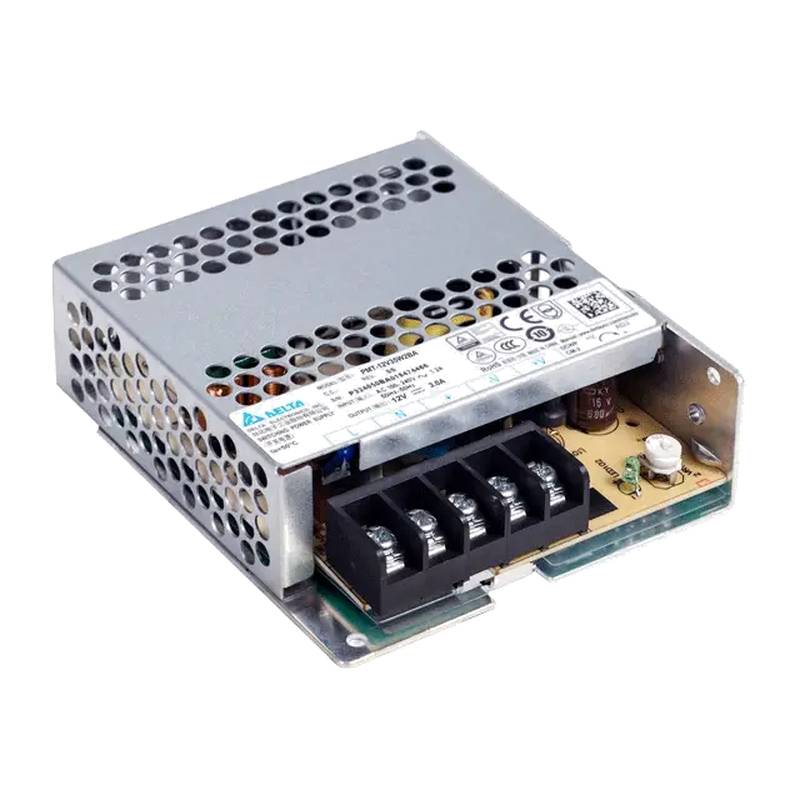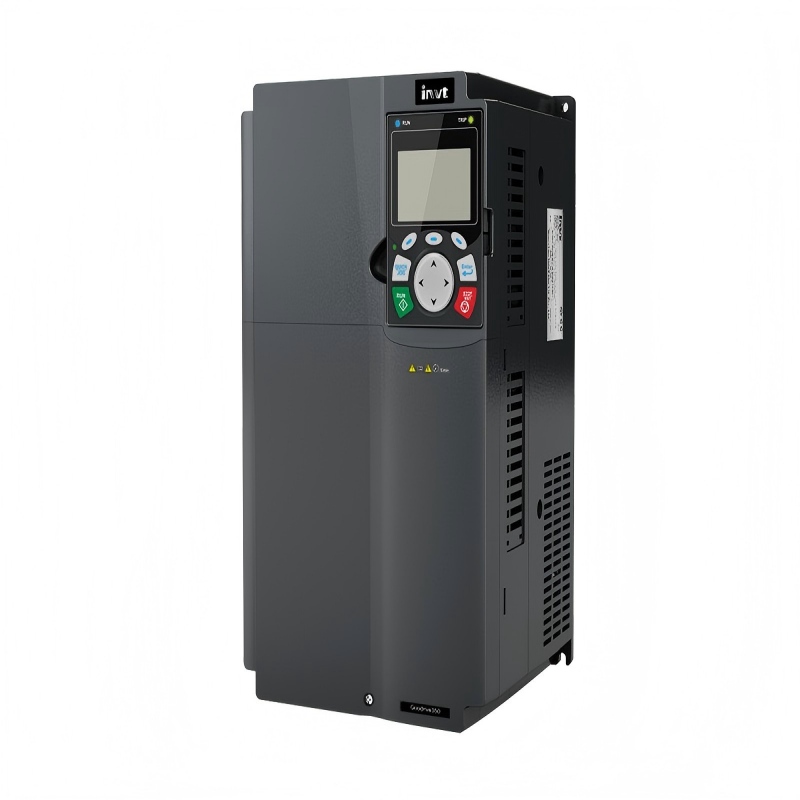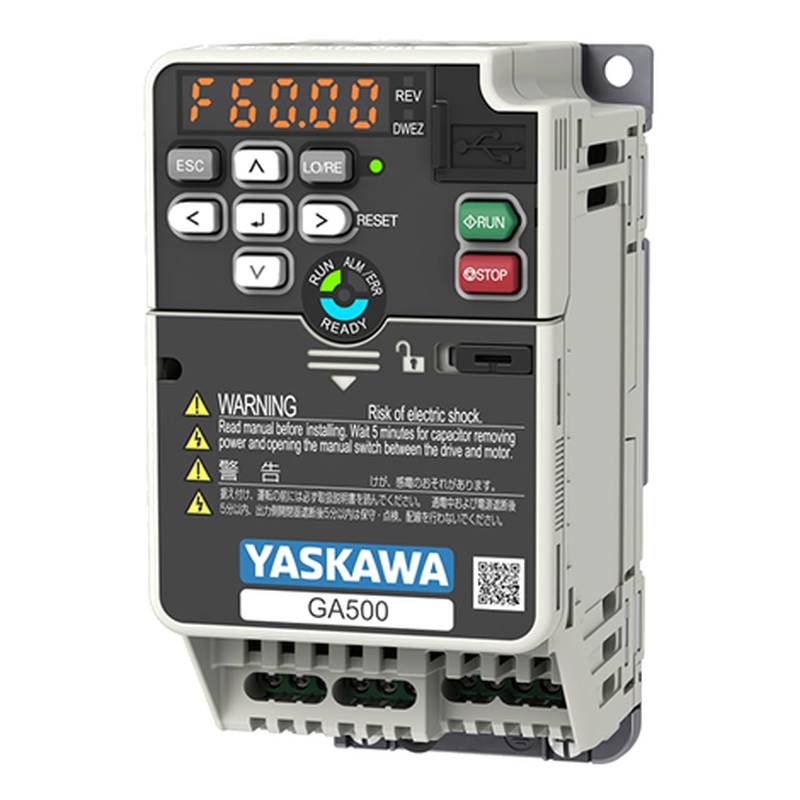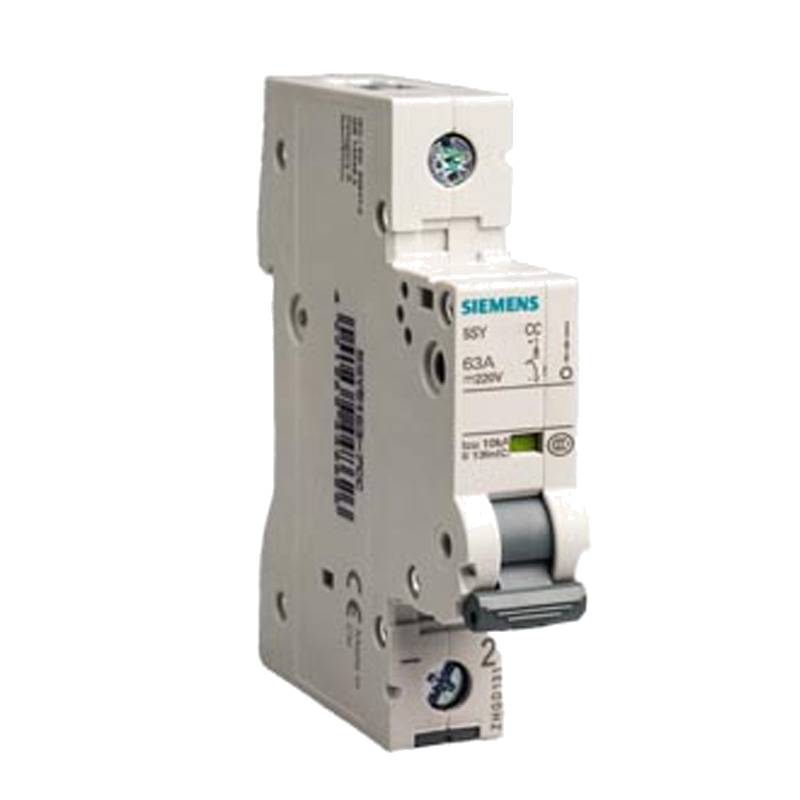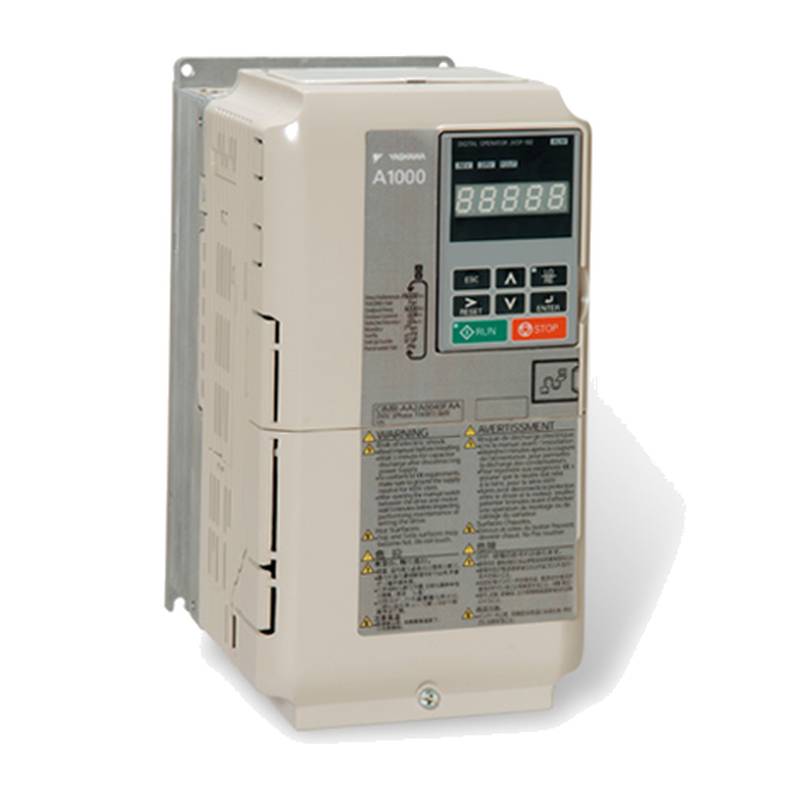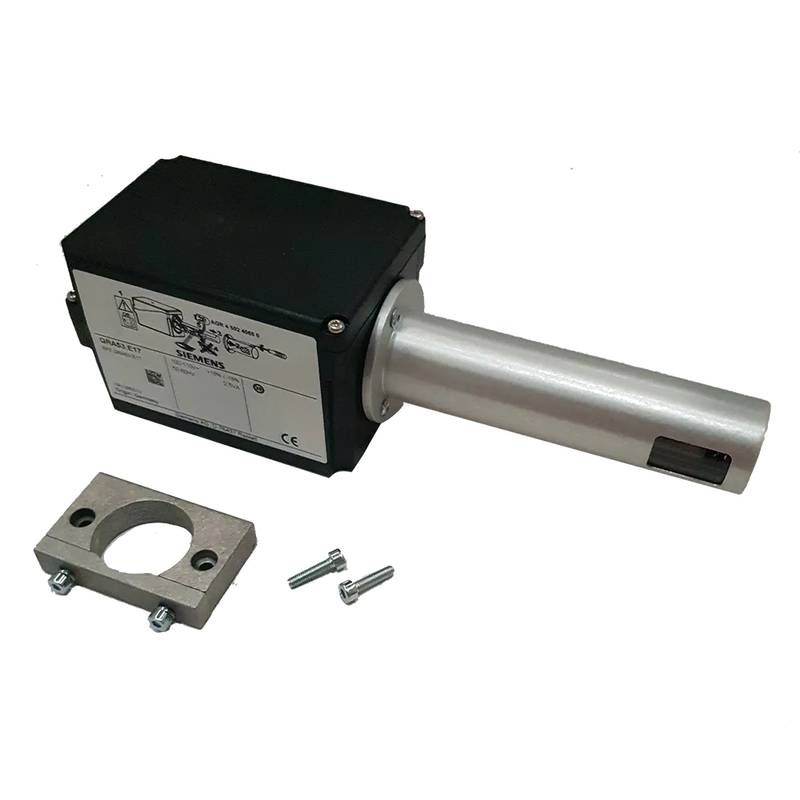
The Delta ECM-B3M-L21830RS1 High Torque Medium Inertia Servo Motor is engineered for demanding industrial automation tasks, offering superior performance, reliability, and precise control. This motor distinguishes itself with its high torque density, robust construction, and advanced features tailored for complex motion profiles. Its medium inertia design strikes an optimal balance between responsiveness and stability, making it ideal for applications requiring rapid acceleration and deceleration without compromising positional accuracy. Key technical parameters include a rated voltage of 200V, a rated power output of 1.5kW, a rated speed of 3000 RPM, and an impressive rated torque of 4.77 Nm. The motor's insulation class is F, ensuring safe operation under elevated temperatures, and it features an IP65 protection rating, safeguarding against dust and water ingress.
Core Features & Market Positioning
The Delta ECM-B3M-L21830RS1 servo motor stands out in the competitive industrial automation market due to its exceptional torque-to-size ratio and its seamless integration capabilities with Delta's broader motion control ecosystem. This motor leverages advanced winding techniques and high-grade magnetic materials to deliver consistent, high-performance torque across its operating range, minimizing cogging torque for smoother operation. Its medium inertia characteristics are a significant differentiator, allowing for dynamic performance required in applications such as high-speed pick-and-place, precision assembly, and sophisticated packaging machinery. The motor's design prioritizes longevity and reduced maintenance, positioning it as a cost-effective, high-value solution for manufacturers seeking to enhance productivity and operational efficiency.
Key Application Scenarios
This high torque servo motor finds its optimal application in a diverse range of industrial sectors where precision, speed, and robust torque are paramount. It is exceptionally suited for CNC machinery, enabling precise tool path control and high-speed material removal. In the packaging industry, the ECM-B3M-L21830RS1 excels in high-speed filling, capping, and labeling operations, ensuring consistent throughput and product quality. The robotics sector benefits from its power-to-weight ratio for robotic arms in assembly, welding, and material handling. Furthermore, its precise control capabilities make it invaluable for semiconductor manufacturing equipment, where micron-level accuracy is critical. Other key areas include textile machinery, printing presses, and automated warehousing systems.
Practical System Integration Guidance
Integrating the Delta ECM-B3M-L21830RS1 servo motor into an automation system typically involves connecting it to a compatible Delta servo drive, such as the ASDA-B3 series. Proper wiring is crucial; the motor features a standard connector for power and encoder feedback. Ensure the encoder cable is securely connected to the drive's encoder input to enable closed-loop control. Power wiring requires careful attention to phase connections and grounding to prevent electrical noise and ensure motor protection. For commissioning, the servo drive will need to be configured with the motor's parameters, including rated voltage, current, speed, and inertia, which are critical for optimal performance and tuning. Delta's servo drive software facilitates this process, often including auto-tuning functions to automatically set control loop gains for stable and responsive motion.
Operation and Risk Mitigation
Safe operation of the Delta ECM-B3M-L21830RS1 servo motor necessitates adherence to electrical safety standards and proper environmental conditions. Always ensure the motor is correctly grounded and that all connections are insulated and protected. During operation, monitor motor temperature; the Class F insulation allows for operation up to 155°C, but exceeding this can lead to premature failure. Implement appropriate emergency stop procedures and ensure the servo drive's safety functions, such as overcurrent and overvoltage protection, are configured correctly. Common troubleshooting involves checking for wiring errors, ensuring correct parameter settings in the servo drive, and verifying that the load does not exceed the motor's torque capabilities. Fault codes generated by the servo drive provide valuable diagnostic information for addressing issues promptly.
Scalability & Long-Term Value
The Delta ECM-B3M-L21830RS1 servo motor offers excellent scalability, primarily through its compatibility with the extensive range of Delta servo drives and automation components. This allows for seamless upgrades or expansion of motion control systems as production demands evolve. Its integration with Delta's broader IIoT and digital manufacturing solutions enables real-time performance monitoring, predictive maintenance, and data analytics, contributing to increased operational efficiency and reduced downtime. The robust design and Delta's commitment to product development ensure that this motor remains a relevant and valuable asset for years to come, supporting advanced automation strategies and Industry 4.0 initiatives.
Frequently Asked Questions
Q1: What are the primary advantages of the Delta ECM-B3M-L21830RS1 servo motor?
This motor delivers exceptional high torque density for its frame size. It offers precise and consistent motion control critical for automation. Its medium inertia balances responsiveness with stability.
The robust construction ensures reliability in demanding industrial environments. It is designed for longevity and reduced maintenance requirements. This motor is optimized for efficiency and performance.
Its integration with Delta's servo drives simplifies system setup. Advanced features enhance productivity and operational throughput. It represents a high-value solution for complex motion tasks.
Q2: What types of industrial applications are best suited for this servo motor?
This motor excels in CNC machining due to its precise control. It's ideal for high-speed packaging machinery operations. Robotics applications benefit from its power-to-weight ratio.
The ECM-B3M-L21830RS1 is also crucial for semiconductor manufacturing equipment. Its accuracy supports delicate and high-precision tasks. Other suitable applications include textile and printing machinery.
It is a strong choice for automated warehousing and material handling systems. Anywhere requiring dynamic motion and high torque is a prime candidate. Its versatility supports diverse automation needs.
Q3: How does the medium inertia of this motor benefit performance?
Medium inertia allows for rapid acceleration and deceleration cycles. This improves throughput in pick-and-place applications. It enables faster response times for dynamic adjustments.
This characteristic provides a good balance for many servo applications. It avoids the extreme responsiveness of low inertia motors. It also offers better stability than high inertia motors.
The motor can handle quick positional changes effectively. This is vital for tasks requiring precise and agile movements. It optimizes performance across various motion profiles.
Q4: What are the key technical specifications of the Delta ECM-B3M-L21830RS1?
The motor operates at a rated voltage of 200V. It provides a rated power output of 1.5kW. Its rated speed is 3000 RPM for high-speed tasks.
It delivers a significant rated torque of 4.77 Nm. The insulation class is F for thermal resilience. It features an IP65 rating for dust and water protection.
These specifications ensure robust performance and reliability. They are critical for optimal integration and operation. Consult the datasheet for a full parameter list.
Q5: What type of servo drive is recommended for the ECM-B3M-L21830RS1?
Delta's ASDA-B3 series servo drives are highly recommended. These drives are designed for seamless compatibility. They offer advanced features for optimal motor performance.
The ASDA-B3 series ensures efficient communication and control. They support the motor's high torque and speed capabilities. Proper drive selection is crucial for system success.
Using a compatible drive simplifies commissioning and tuning. It maximizes the motor's potential and system reliability. Refer to Delta's documentation for specific drive models.
Q6: How is the Delta ECM-B3M-L21830RS1 servo motor typically wired?
Power wiring connects the motor's power leads to the servo drive. Ensure correct phase sequencing and secure grounding. This prevents damage and electrical interference.
The motor also features an encoder connector for feedback. This cable transmits positional data to the servo drive. It's essential for closed-loop control accuracy.
Always refer to the motor and drive manuals for specific wiring diagrams. Incorrect wiring can lead to faults or motor damage. Use appropriate connectors and cable types.
Q7: What steps are involved in commissioning this servo motor?
First, physically connect the motor to the servo drive and power. Ensure all wiring is secure and correct. Then, power up the servo drive system.
Next, configure the motor parameters within the servo drive. This includes rated voltage, current, speed, and inertia. Incorrect parameters lead to poor performance.
Finally, perform motion tuning and testing. Auto-tuning functions can optimize control loop gains for stable operation. Verify precise motion execution.
Q8: What are common troubleshooting issues with this servo motor?
Wiring errors are a frequent cause of problems. Check all power and encoder connections for correctness. Ensure proper grounding is in place.
Incorrect servo drive parameter settings can cause issues. Verify that the motor's specifications match the drive's configuration. Re-check inertia and gain settings.
Excessive load or mechanical binding can lead to faults. Ensure the mechanical system allows free movement. Monitor motor temperature for signs of overload.
Q9: How does this motor contribute to IIoT and digital manufacturing?
The motor integrates with Delta's IIoT platforms for data collection. It allows for real-time performance monitoring. This data aids in optimizing production processes.
It enables predictive maintenance by tracking operational trends. This helps prevent unexpected downtime and failures. Asset management is enhanced through remote diagnostics.
This integration supports Industry 4.0 initiatives. It bridges the gap between physical machinery and digital systems. Data-driven insights improve overall factory efficiency.
Q10: What is the long-term value proposition of the ECM-B3M-L21830RS1?
Its robust construction ensures a long operational lifespan. This reduces the total cost of ownership over time. It's built for reliability in tough conditions.
Compatibility with Delta's evolving product lines offers scalability. Systems can be upgraded or expanded as needed. This protects the initial investment.
The motor's advanced technology supports modern automation needs. It remains relevant for complex and high-precision tasks. This future-proofs automation investments.














